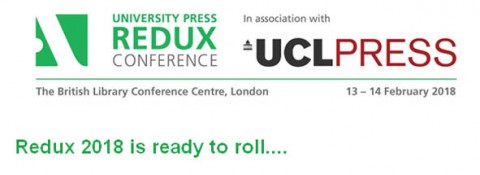
So the University Press Redux Conference starts tomorrow. I wasn't able to attend the last time it took place (in 2016) but I already get the sense that this year's is going to be bigger and better. Anne Nolan (an ex-colleague from my Ashgate Publishing days) wrote a thoughtful summary of her impressions of the 2016 event and the key points she drew attention to were:
- Energy and commitment - 'There is a palpable energy, and lots of new ideas, in university publishing'
-
The importance of reputation, especially for early-career researchers - 'Early-career researchers still need to be published by a reputable academic press, and preferably a university press. This is crucial for getting a job.'
-
A crisis of readers? - 'Are there more people wanting to publish than are wanting to read?'
-
Discoverability (and sustainability) - 'No-one will buy or access books if they don’t know they exist....Will there be an ongoing need for gatekeepers, curators and sales people (the role that publishers have played and continue to play)?'
-
Collaboration and outsourcing - 'There is a notable increase in collaborative activity; a sense that smaller publishers can punch above their weight and gain mutual advantage by working together.'
-
Who pays? And will there be a limit? - 'There is no such thing as free research, and to publish it requires investment.'
I'll be interested to see in the next two days whether these themes are still at the forefront of discussion (and if they are how or whether the conversation has progressed) or if others have taken their place.
(Anne's post can be read in full here)
Learn more about our work : read our case studies

Add new comment